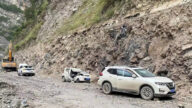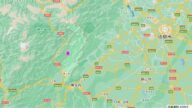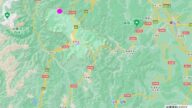【新唐人2013年04月26日訊】雅安地震後,「豆腐渣工程」、「紅十字會被網友喊滾」、「救災物資被扣押或倒賣」等醜聞被相繼曝光,中共當局立刻發表禁止社會力量、民間團體、以及個人前往災區的通知。日前,黨媒《人民日報》甚至發表了要求國內外媒體不要前往災區「添亂」的評論文章,被諸多媒體和資深記者認為是當局在藉機加強新聞管制,以防止更多醜聞被曝光。
4月24號,中共喉舌《人民日報》發表評論文章,要求媒體記者不要到災區採訪,否則會打擾救援工作,並表示,包括媒體在內的各種社會力量,在災區現場的作用「添亂大於貢獻」。
原《河北人民廣播電臺》編輯、自由撰稿人朱欣欣:「記者真實的報導災區的情況不能稱為干擾,把災區各方面真實的情況報導出來,讓人們了解災情,一個是滿足大家了解災區的願望,同時也能讓災區救災的工作能夠透明、公開。」
《人民日報》評論說:「與災區有關的重要信息,政府都會通過微博、網站公布。」但民眾多表示:對官媒的信任度極低。
大陸博客作家劉逸明:「只要是官方的媒介發佈的信息,我想都是很值得懷疑的。因為官方媒體弄虛作假由來以久,所以現在如果沒有其他的媒體來報導佐證,我想很多消息讀者是不願意相信的。」
媒體人朱欣欣也認為,只通過官方或官方指定的某幾個媒體發佈的報導,不可能達到信息的真實與平衡,而信息的真實全面必須依賴於多方面的客觀報導,這是基本常識。
朱欣欣:「記者要想真正的讓公眾了解災情,必須得深入現場,得掌握第一手的材料,而不是只是轉達、轉述官方的新聞發言人,官方的一些說法,必須得直接面對現實、真實的情況,才能把災區真實的情況告訴公眾。」
官方認為,媒體在災區會擠佔各種資源,造成救援道路擁堵,但有網友質問,《新華社》派出的121人龐大報導隊伍,相當於所有外媒記者的總和,難道就不佔資源嗎?
官方的另一個觀點是,沒有「媒體倫理」的記者,會只為了顧全自己的採訪而影響救援工作。對此,也有人用事例反駁官方,說﹕北川、汶川地震時,為採訪而阻止救援人員搶救,造成傷者死亡或強闖手術室,延誤手術進度的幾名記者,恰恰全部來自於《中央電視臺》採訪組。
劉逸明:「如果是添亂,那為甚麼有的媒體記者可以去呢?新華社、人民日報、央視三大媒體。說明他們怕人多嘴雜,有很多東西可能見不得人,不希望普通的媒體記者能夠到現場去進行報導。」
資深媒體人普遍認為,官方不希望其他媒體前往災區的主要原因,是擔心實情被過多的曝光會威脅到中共的統治。
劉逸明:「記者多了,因為每個媒體都報導的話,就有可能他們報導的內容、情況跟官方一些媒體的報導有出入,有出入的話就容易讓民眾、讓外界知道事實真相是甚麼樣的,所以他們不願意看到,希望能夠壟斷輿論。」
劉逸明還表示,《人民日報》發表這個文章,實際上就是在限制媒體的新聞報導。他所說的所謂干擾,可能是干擾了官方的一己私利,官方是站在自己立場,而不是站在公眾的立場說話。
而中國獨立新聞工作者、《經濟學週報》前副總編高瑜也指出,《人民日報》這種壟斷輿論,剝奪新聞自由的做法,只能激起更多民眾的反感,以及公正媒體及記者的反抗。
採訪/朱智善 編輯/張天宇 後製/李智遠
Journalists Discouraged from Going to Earthquake-hit Areas
Scandals about the Ya’an earthquake
continue to be exposed.
These have included mention of jerry-built buildings,
China’s Red Cross was told to “Scram!” by netizens,
and relief supplies were seized or resold.
The Chinese Communist Party authorities
have issued a notice.
It bans social groups and individuals
from going to the earthquake-hit regions.
Now, a commentary published in the People’s Daily
discourages journalists from going there, too.
Media professionals comment that the CCP is
tightening control over the media, to prevent the exposure of more scandals.
On April 24, the People’s Daily, a CCP mouthpiece,
published a commentary.
The article discouraged journalists from going
for interviews in quake-hit regions,
this was said to be something which would
“hinder the relief work”.
The review alleged that for all social groups
including media,
their arrival at the disaster areas
would “cause troubles rather than be helpful”.
(Ex-editor, Hebei state radio station) Zhu Xinxin:
“Reporting of the true situation in quake-hit areas
cannot be called causing trouble.
News coverage should inform the public about
the real situation there,
this would help to keep details on progress
of relief work transparent.”
The official review alleged that “All important
information related to the damaged areas will
be released on official micro-blogs and websites.”
Many people never the less expressed
their distrust of official media.
(China blog writer)Liu Yiming: “All the news
items released by official media are doubtful.
The official media has been known
to be fraudulent.
So if there are no reports from other media,
people won’t believe what the official media say, I think.”
Zhu Xinxin holds the same view. He says that news
coverage by official media or by a few designated media
cannot fully reflect the reality of the situation.
Only extensive reporting can present the
authenticity and completeness of information,
this is simply common sense, Zhu Xinxin remarks.
Zhu Xinxin: “To get first-hand information about
the disaster, reporters have to arrive on the scene.
They should avoid becoming spokesmen who only
reproduce or forward the authorities’ remarks.
They have duties to report on the real situation,
and to inform the public about the truth.”
The review article claimed that the
media at the scene would occupy all resources and
cause road congestion which would hinder rescue teams.
A netizen posed the question, “Xinhua News Agency has
sent 121 journalists there, which is the equivalent of the total number of foreign reporters.
That isn’t deemed to be interfering with or
using up resources, is it?”
The commentary argued that the reporters who
“lack professional ethics” will impede rescue work,
as they would only pursue interviews.
Some netizens refuted the view with some facts
that happened in rescuing victims in the Beichuan and Wenchuan earthquakes.
At the scene, a CCTV journalist, in order to ensure
interviews, prevented rescue workers from progressing,
this resulted in the death of a survivor.
Another CCTV journalist forcibly broke into an
operating theatre, interrupting surgery in progress.
Liu Yiming: “Speaking of making trouble,
how come some reporters are allowed to go there?
Reporters from the Big Three media, Xinhua News Agency,
the People’s Daily and CCTV, were all given green lights.
This shows that the authorities fear reporters
from other media going to the scene.
There may be some truth still hidden from public.
So they don’t want reporters from other media
to report at the scene.”
Many media professionals believe that the reason
behind all this, is that more exposure of the truth will threaten the CCP’s rule.
Liu Yiming: “Other reporters’ coverage may differ from
that of the official media.
The difference will offer clues to the public,
triggering an exposure of the truth.
That’s against the authorities’ wishes,
they’ve always wanted to control the media.”
Liu Yiming indicates that the essence of
this commentary is to restrict media reporting.
The alleged interference may refer to affecting
the authorities’ one-sided interest.
Liu remarks that this article spoke for the authorities,
rather than for the public.
China’s independent journalist Gao Yu comments.
The People’s Daily’s voice is against freedom of media.
She warns that the act will only arouse more public
resentment and resistance from impartial media and reporters.





















